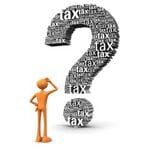

After Marie contacted us regarding her credit card problems, we quickly intervened on her behalf. We contacted her creditors to let them know she intended to consolidate her debts with a consumer proposal and avoid bankruptcy. We dealt with each of Marie’s creditors to ensure she would no longer have to deal with them and we negotiated an arrangement under which Marie paid $120 per week (with no interest) and was completely debt free within 4 years. The repayments were affordable, the harassment from creditors stopped and she managed to avoid going bankrupt.
Contact Rumanek & Company Ltd. for more information on bankruptcy and debt solutions. Or please fill out the free bankruptcy evaluation form. To learn more please visit our YouTube Channel. Rumanek & Company have been helping individuals and families overcome debt for more than 25 years.



